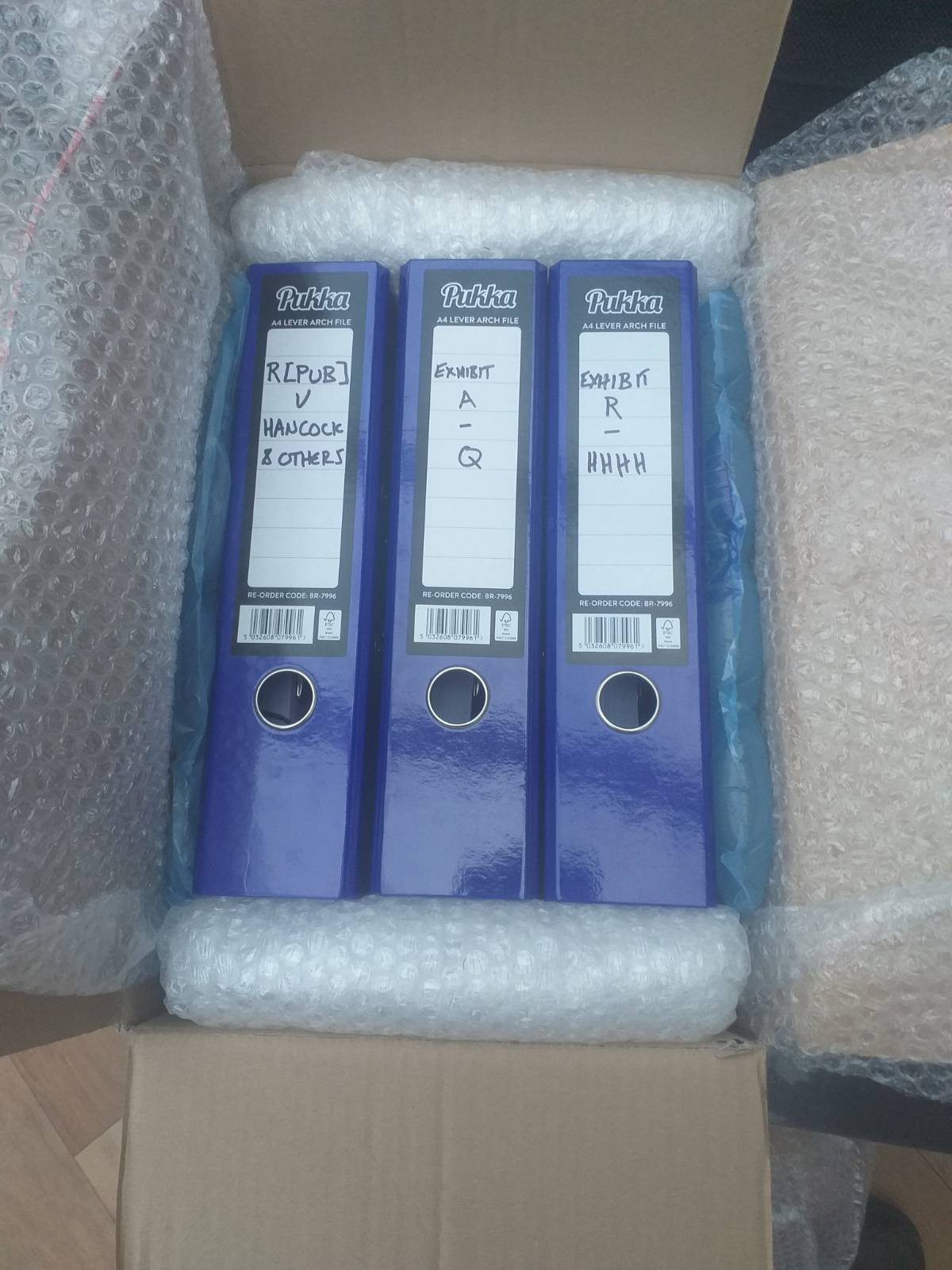Failed Attempt To Sabotage PCP By Persons Unknown
Having fought numerous miscarriages of justice in the courts over more than a decade, I am well versed in determining when my legal adversaries are engaged in the dark art of sabotage.
From lightweight forms such as pretending they didn’t receive notices which were sent by recorded mail, to conspiring to have me declared bankrupt and subjecting me to an Extended Civil Restraint Order – which effectively banned me from issuing proceedings in every court – the depths to which desperate saboteurs will sink are often bottomless.
Especially when the potential consequences of my arguments being sustained are lengthy prison sentences for members of the privileged class, who genuinely believe they are unaccountable to the people they cheat, exploit and destroy for their own private material gains.
Judicial Sabotage 101
Generally speaking, the critical element of sabotaging a legal case is convincing the judge that either some crucial piece of evidence is missing, or that the arguments submitted are somehow misconceived and therefore ‘totally without merit’.
However, in the so-called superior civil courts, where judges so often consider themselves to be beyond both the law and reproach, I’ve lost count of the number of times I have witnessed high ranking members of the judiciary become aggressive advocates for my opponents, who simply have to turn up at court and spin their unsubstantiated sophistry to go home with the judgment and a hefty costs order in their favour.
Given the ultimate seriousness of laying charges of pandemic fraud against Hancock, Whitty, Vallance and Ferguson and their mistakenly perceived unaccountability as officers of the UK’s criminally rogue government, it was certainly no surprise that we detected the first sign of sabotage, within two weeks of the case being filed.
Hidden In Plain Sight
As I have already documented here, our Statement of Case was filed electronically at Westminster Magistrates Court on 19/03/2021, along with a covering letter informing the court that our substantive evidence bundle would be sent by Royal Mail Special Delivery the following week, including hard copies of the Statement of Case and the covering letter.
On 26/03/2021, the three case files were received and signed for by the court, as is shown by the slideshow at the top of this post. We were then informed by Westminster Magistrates that the papers were being checked by the court’s legal department and that we would be notified of the case’s progression in due course.
After not hearing anything for a couple of weeks, we made further inquiries and were told that the papers had been sent by Westminster to Bromley Magistrates Court’s listing department for processing and that they were undergoing final check’s by the Kent court’s legal department.
Moreover, we were told the files had been sent to Bromley because that is the judicial venue to which all Private Criminal Prosecutions filed at Westminster are sent for processing and listing, once the latter court’s legal team have completed their initial assessment of the papers laid.
Deputy Chief Magistrate
However, a few days later we received an email from the Westminster court, letting us know that the case had been passed to the Deputy Chief Magistrate [DCM] for consideration and his decision was enclosed as an attachment.
Despite what we had been told about the three evidence files being processed by the Bromley court’s legal team and listings department, the judge purported to dismiss the case on the emphatically unsustainable ground that we haven’t cited enough prima facie evidence for the case to proceed.
Nevertheless, the DCM stated in his judgment that he had given very careful consideration to “126 pages” of evidence, when the final page count in the three case files was in excess of 800 pages [condensed from more than 1,000 pages], which included 11 expert witness statements in support of the serious allegations made.
It was then that we realised that the judge’s decision was based entirely on the 126 page Statement of Case and that he clearly hadn’t had sight of the copious prima facie evidence contained in the three evidence files.
As Void As The Dodo
Whilst the judge clearly believed that, in the absence of the corroborating expert witness statements, there was not enough evidence for the case to proceed, his decision to dismiss it was as void as the Dodo, albeit seemingly through no fault of his own.
Needless to say, we called Bromley Magistrates to check whether they knew anything about the decision having been made and were somewhat surprised to discover that the court’s legal team had sent the case [including the three evidence files] to the DCM for consideration and that we should receive his decision in due course.
Naturally, we gave those concerned the benefit of the doubt and provisionally assumed that the legal teams of both courts realised that an obvious error had been made and that the initial decision would be disregarded.
However, a few days later we received an email from Bromley letting us know that the judge had already decided the matter and dismissed the case in the order we had already received from Westminster.
We therefore logically concluded that there had been a very subtle attempt to sabotage the case by separating the electronic filing of the Statement of Case from the hard copy evidence files which arrived by Special Delivery the following week.
Reconsideration Trumps Sabotage
Without delay, upon our polite request, Westminster Magistrates was informed by our liaison at Bromley Magistrates that, through what appeared to be no fault of his own, the DCM’s decision was void, on the ground that it was merely based upon the Statement of Case and did not take into account the prima facie evidence adduced.
But rather than appealing the decision to the High Court on that ground, we suggested that it would be better for all concerned if the judge was willing to set aside his initial decision, despite the fact that we have never known any judge in either the criminal and civil domains to even countenance such an action once a decision has been made.
Nevertheless, within a little more than 24 hours, we were informed that the Deputy Chief Magistrate had decided to grant our request for reconsideration, as if the order dismissing the case had not been made.
Furthermore, the judge indicated that he will be reconsidering the case upon all the evidence adduced at the end of next week, with his final decision to follow shortly afterwards.
As Rare As Hen’s Teeth
In other words, the DCM appears to have shown that he possesses that increasingly rare quality among the judiciary – integrity – given that he could so easily have passed the buck to a dodgy High Court judge by forcing us to appeal his void decision in a rigged proceeding, instead of admitting the error and reconsidering the case on its merits. It certainly wouldn’t have been the first time we experienced such blatant judicial corruption.
Moreover, even if he committed the error of judgment because of foul play by a government stooge working at Westminster Magistrates Court, the judge’s integrous reconsideration of the case emphatically trumps the duplicitous attempt to sabotage it.
However, rest assured that no matter what the outcome of the judge’s second decision, we have no intention of backing down until the Four Horsemen of COVID-1984 and their accomplices are held to account for their crimes, for the purposes of which we are fully prepared to challenge any miscarriage of justice we are handed in the interim, as the foregoing account unequivocally affirms.





